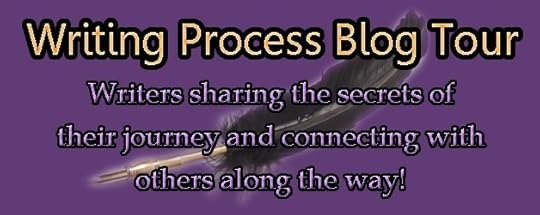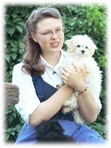The Writing Process Blog Tour

I was tagged in the Writing Process Blog Tour by Caroline Keeth, of Three Little Birds. She had been tagged by Kathryn Lang of Growing H.O.P.E.
I'd like to pass the baton on to:
Sarah Scheele, of Stardust and Gravel
Kelsey Bryant at Kelsey's Notebook
Deborah O'Carroll at The Road Of A Writer
Joanna Holden at It's a Writer's Thing
& for my fifth pick I nominate whoever wants to jump in and grab a bit of the fun!
These are all really good questions for any writer to ask themselves, because once you know these, a lot of other things can fall into place.
1. What are you working on? (Well, this one is easy... )
Right now I am working on Snow Queen retelling... I had wanted to write a story/novella/novel called Winter Queen, but was a little stymied on exactly the angle to tell. After the release of Frozen, (which I enjoyed very much, but had a lot of points to argue with it, too!) the missteps they had taken fueled my imagination.
The original Snow Queen tale was basically a metaphor for maturing, learning to see the bad in life as well as the good, and keeping the balance. (Also, that dedicated friends are worth hanging onto and make life better?)
Frozen is about... um, sisterly love? (I think that's what they all say, though anyone with an opinion can get different messages out of it.)
Winter Queen is about how the pitfalls of emotional instability, especially growing up, (when we are changing and becoming more powerful in every level and yet so insecure, so unsure of how to use that new power wisely) And how, if we allow ourselves to be swayed into a "victim mindset" it can cripple us and those around us in a myriad ways.
The only way to overcome the natural, self serving, "poor me" mentality takes true maturity, the real acceptance of responsibilities for our actions and the consequences we are capable of causing. When we step out into the light of adulthood and say "I accept what I should have changed, and let go of what was not up to me." Then we have found the balance place where we can use the power that is in us, as adults, to promote balance and stability in those all around us, as well as within ourselves.
2. How does your work differ from others of its genre?
I like to blend a lot of real facts and very realistic situations into the imaginative earlms, I think it gives them a deeper meaning and gravitas, but also I hope that readers can learn actual true things from my stories. That's what stories do best, in my opinion, so I certainly want to be delivering as well as I can.
So many readers have commented on the "real feel" of my settings and characters, and I prize that aspect of writing very highly.
So I conscientiously aim for as good a tale as I can tell, with an almost pseudo-historical accuracy... to the point where someone might read my work and then years later be browsing through history and come upon an interesting incident or fact, and think "Oh, OH! Like that book I read!"
Yep.

A lot like that book you read.

3. Why do you write what you write?
Well, this is a subject I've given considerable thgouth to, and I like to talk about story telling theory!
I like fantasy, mostly because my mom read the Hobbit out loud to us kids when I was seven; but also because the LOTR books were such encouragement for me all through growing up... So I feel like spec-fic can tell tales that are Truer than any other kind, because we get to see how things really feel with all the unsee-able stuff that makes up most of life. The physical realm is really only a small slice of living... and it's the inside battles that can be the hardest to win.
An angry giant can stand in for the internal problem of having a bad temper.... it must be defeated or else it will continue to wreck things!
And those un-seeable thigns are the ones spec-fic, (fantasy or sci-fi) can really grapple with exploring to the full degree. So, when I write I feel like I'm trying to describe a mental/emotional/spiritual fact by translating it into the same place that our brains go to process a lot of things: the dream world. Where anything can happen, and even the cloudiest of ideas can be seen and felt in living color.
So that's basically my writing theory on fantasy, and why I'm drawn to spec-fic in general. I have a lot of respect for history, and my dad as well as other family members are very drawn to studying up on all different aspects of it... so I'm pretty well exposed to a wide range there. I have a few historical fiction ideas that I feel are novel enough to be worth putting down on paper... (I really hate the thought of simply re-drawing an already overdone plot-line!) But the hist-fic doesn't have quite the prominent place in my heart as spec-fic does.
4. How does your writing process work?
Ah! That's the tough question.
I generally get an idea, and it can be from anywhere: something mentioned in conversation, two random thought patterns colliding to form a new and kaleidoscopic train wreck of a situation, or often times an element from my dreams will hang on long after I'm awake yelling at me "Hey! This is super neat! Take a closer look."
I generally let those all percolate for a long time, maybe a few months, sometimes several, several years. When I feel the plot has boiled long enough and built up a nice head of steam, I sit down, lift the lid off the pot and try to catch what bubbles out onto paper.
It's taken quite a bit for me to get the hang of it, but by now I feel like I'm getting a handle on the process. I try to go frotn to back, but if a scene wants to come I just let it. We sort that out later... though I try to keep mental tally of where everythign is headign adn who is in waht condition at any given point in time.
I used to be famous for my memory back during my schooling days, so I think this definitely serves me in good stead in this method of writing. It's only rarely that I get a little mixed up and miss something... and usually that's because that thread may have morphed in another scene that bubbled out, showing a little different side of that particular vein.
I have my in-house editor, perfectionist sister comb through it, and she also helps me brainstorm as we go, so when she reads through she knows what is supposed to be there and will catch it if it's conspicuously missing.
When we two have trashed the grain out of it, we throw away the straw and commit the gleaming grain to the keen eyes of betas, who give us further feedback.
From then on out the process is just about like anyone else's I suppose... it morphs into the process of publishing, and is not the writing process anymore!
Published on June 02, 2014 01:00
No comments have been added yet.



